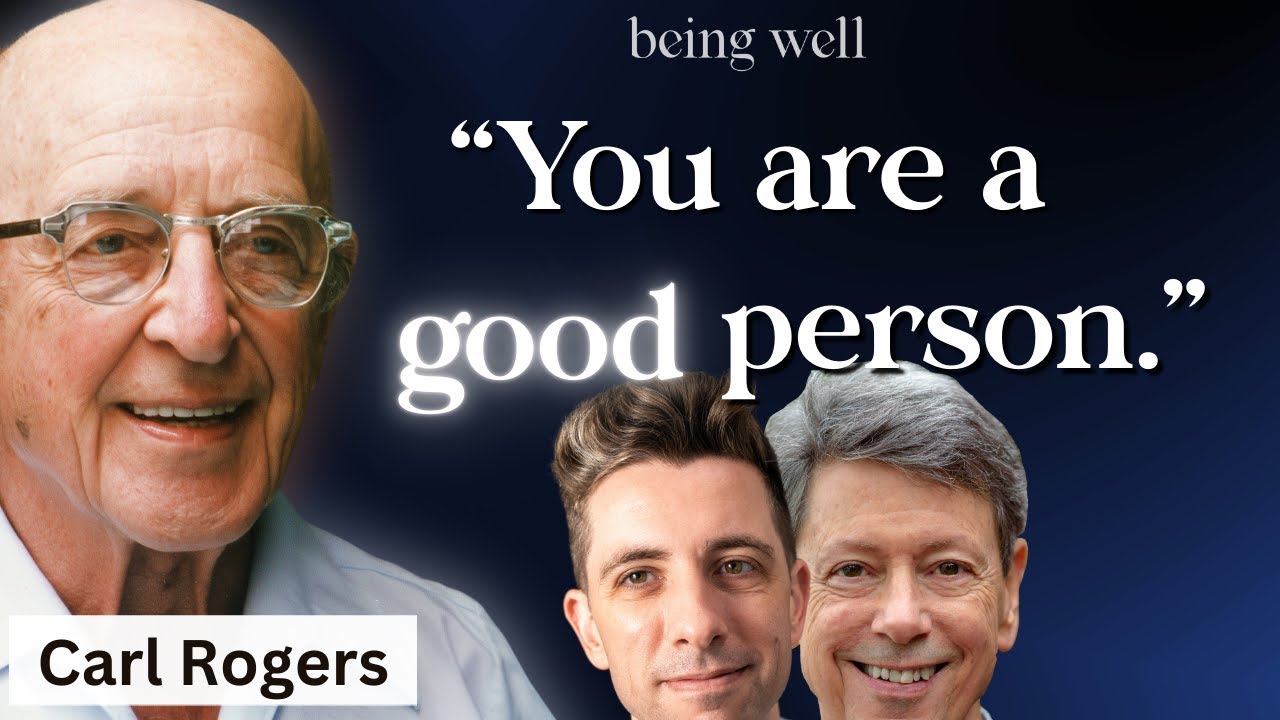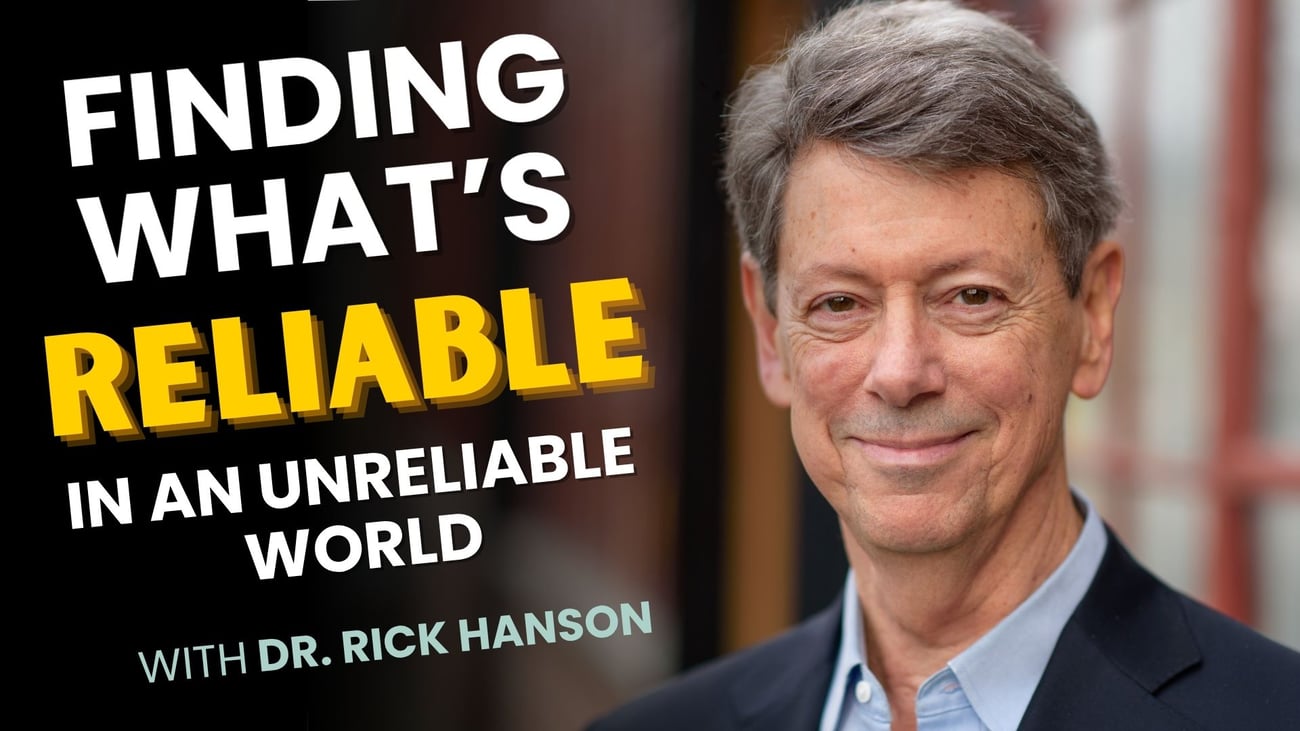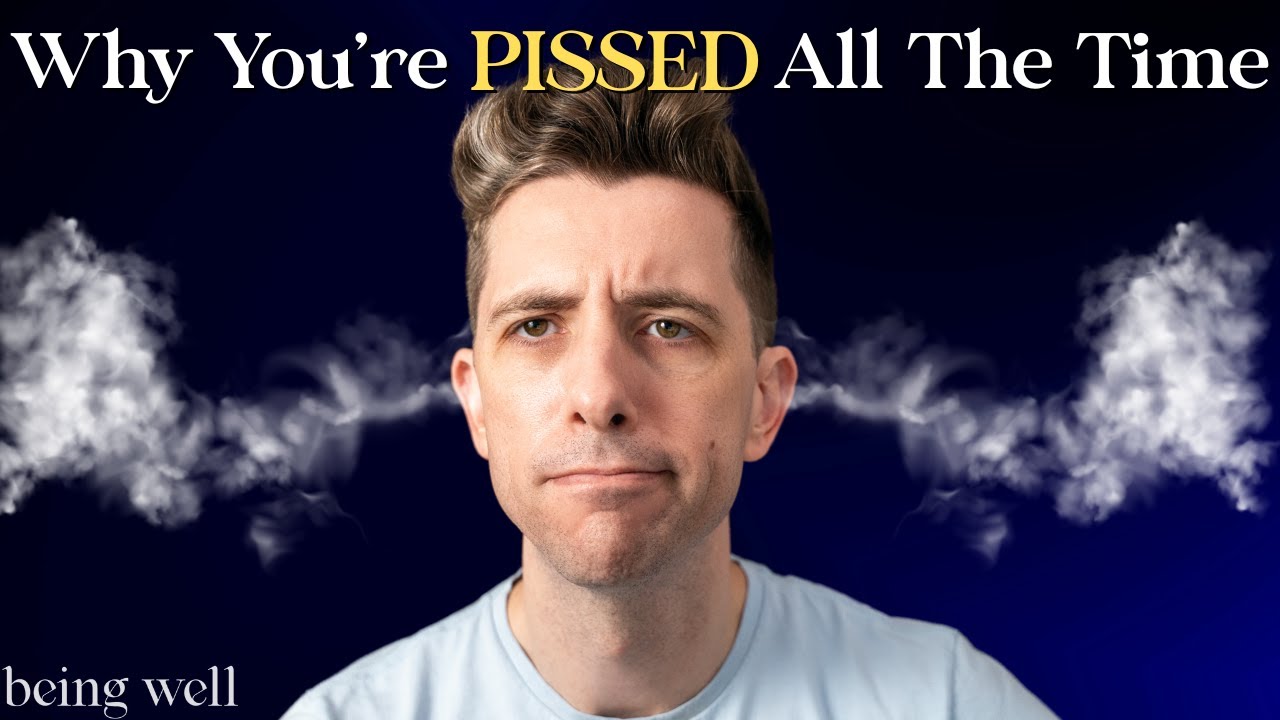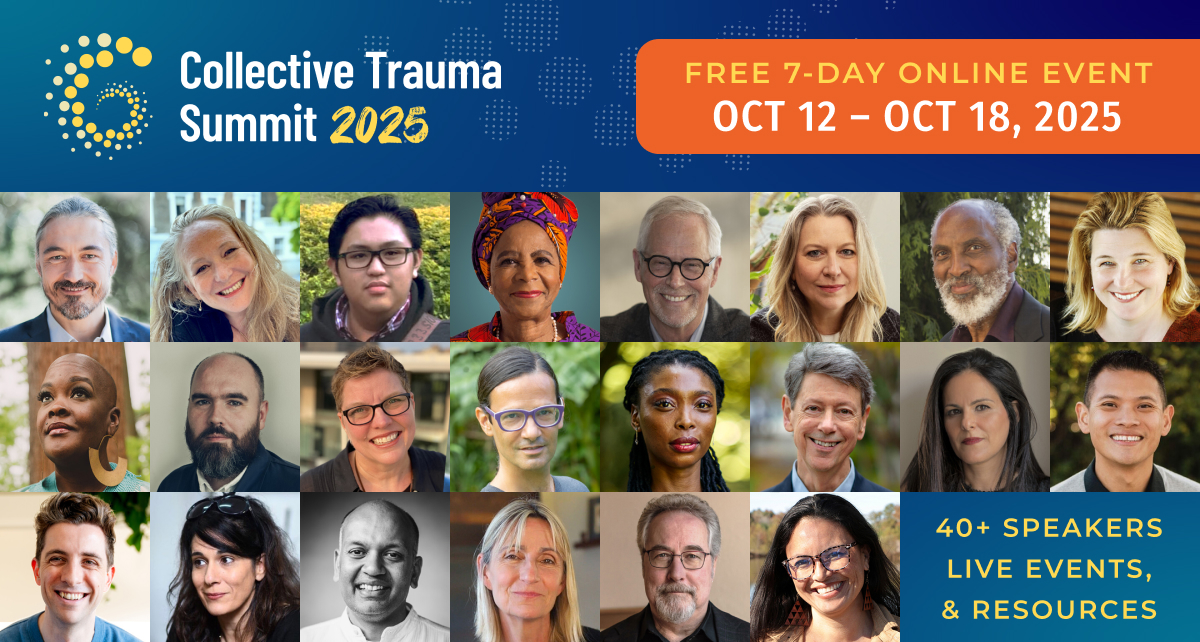|
|
MindFull of GOOD |
 |
Dr. Rick Hanson's Occasional Collection of Good, Free Stuff
|
|
|
NEW ON THE BEING WELL PODCAST:
|
What if You Aren’t Broken? Carl Rogers and Humanistic Psychology |

|
"We're not merely a bunch of pigeons pecking to get more rewards. There are broad and vast qualities within us with regard to which we have agency and with regard to which there is a deep sense of meaning."
— DR. RICK
HANSON
|
Dr. Rick and Forrest explore humanistic psychology, the mid-20th century movement that redefined how therapists relate to clients. It challenged the pessimism of Freud and the mechanism of behaviorism, offering a more hopeful alternative: that our nature is fundamentally good, and our job is to let it shine through. They discuss Carl Rogers’ work, including self-actualization, conditions of worth, unconditional positive regard, trusting your experience, and the
central role of the therapeutic alliance. Throughout, they focus on what you can take from these ideas into your life.
|
| Watch/Listen to the Full Episode
|
|
|
|
|
|
NEW FROM THE WEDNESDAY TALK/MEDITATION:
|
Finding What’s [Reassuringly] Reliable in an Unreliable World |

|
In these turbulent times, it’s natural to feel shaken. Together, we can return to what is truly reliable—our present moment, our good intentions, our capacity to love, the steadiness of awareness, and the enduring ground of nature and the universe. These refuges give us strength, clarity, and peace, even amid uncertainty.
|
| Check out the Talk & Meditation
|
|
|
|
|
|
HAVE YOU READ IT YET?
|
Buddha's Brain: 15th Anniversary Edition |

|
With more than 500,000 copies in print since it was first published, I'm proud to announce the 15th Anniversary edition of my book Buddha's Brain, which features this new preface.
|
| Get Your Copy
|
|
|
|
|
|
ALSO NEW ON THE BEING WELL PODCAST:
|
The Psychology of Resentment: Over-Functioning, Repression, and Repair |

|
Dr. Rick and Forrest explore the silent killer of relationships: resentment. They discuss resentment as a combination of perceived grievance (“I was wronged”) and helplessness (“and I can’t fix it”), before talking about how over-functioning and control tendencies can lead to resentment in relationships – one person shoulders more of the load while quietly stewing about it. Topics include the role of rumination in keeping resentment alive, the difference between legitimate grievances and toxic rumination, and why resentment can feel protective. Rick shares a step-by-step framework for handling resentment
when repair isn’t possible, while Forrest highlights how communication and claiming agency can be powerful antidotes.
|
| Watch/Listen to the Full Episode
|
|
|
|
|
|
FREE ONLINE EVENT:
|
Collective Trauma Summit |

|
Knowing that you do not suffer alone is the beginning of healing. With compassion, we can strengthen the heart while opening it, and find new ways, together, to make the world we long for. If you've been struggling, we hope you'll join Rick, Forrest, and 40+ others for Thomas Hübl's Collective
Trauma Summit — a wonderful week of teachings, experiential practices, inspiration, and supportive community.
|
| Check It Out
|
|
|
|
|
|
ALSO NEW ON THE BEING WELL PODCAST:
|
The Psychology of Resentment: Over-Functioning, Repression, and Repair |

|
Dr. Rick and Forrest explore the silent killer of relationships: resentment. They discuss resentment as a combination of perceived grievance (“I was wronged”) and helplessness (“and I can’t fix it”), before talking about how over-functioning and control tendencies can lead to resentment in relationships – one person shoulders more of the load while quietly stewing about it. Topics include the role of rumination in keeping resentment alive, the difference between legitimate grievances and toxic rumination, and why resentment can feel protective. Rick shares a step-by-step framework for handling resentment
when repair isn’t possible, while Forrest highlights how communication and claiming agency can be powerful antidotes.
|
| Watch/Listen to the Full Episode
|
|
|
|
|
|
ASK RICK:
|
How do you deal with a situation in which a perpetrator repeatedly abuses the victim? The mind and soul are so badly bruised that there is no way out. |
 |
The situation you describe really touches my heart – and yes indeed, it is one of the greatest challenges to the topic of forgiveness.
First of all, whatever one does regarding forgiveness, safety comes first, for oneself and if relevant, for others. So I hope you are doing what you can to get out of a relationship with someone who is abusing you, or shrink the size of it so that it no longer contains abuse.
Second, sometimes a person just can’t forgive, in any way, shape, or form. It’s too early, the wound is too great, what happened seems unforgivable. If that’s true, it’s true.
|
"Then around the non-forgiveness could be a disengagement from pouring gasoline on the fire of outrage, resentment, fault-finding, self-criticism, etc. And skillful action as appropriate, such as to enlist the useful aid or support of others."
|
Third, if the first level of forgiveness is possible – releasing, disengaging from resentment or anger, yet without a full pardon – then a person could help herself to experience and stabilize that state of mind. For example, to do this myself, it helps me to know that a perpetrator has suffered, too (usually at the hands of others). Sometimes it helps to seek justice; knowing that you have done what you can for justice – if only to protect others from the perpetrator – and perhaps knowing that the perpetrator is indeed facing justice of one kind or another, can help a person set down the burden; you did what
you could and now it’s out of your hands.
Last, whatever you are doing with forgiveness, it helps to take a good step each day toward your own better life. This helps pull your attention into positive actions and their benefits, and draws it away from the perpetrator and the abuse. As you put steps between you and the train wreck behind you, it can play a smaller and smaller role in your life. As the saying puts it: “Better to light a single candle than to curse the darkness.”
|
|
|
|
RICK'S PICK:
|
Chop Wood, Carry Water
|
|
|
I recently found this helpful weekday Substack newsletter
by Jess Craven, which gives you easy, effective political actions to take to stave off despair, effect positive change and elect more true public servants. I hope you also find it useful during these challenging times.
|
|
|
|
|
|
MindFull of Good is a free newsletter that highlights new and free content from Dr. Rick Hanson and the Being Well Podcast as well as other free offerings to fill yourself up with good.
|
|
|
|
|
|
|
|
|
|
|